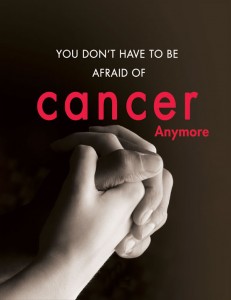A diagnosis of cancer means just that – a form of cancer has been found somewhere in the body. A diagnosis of cancer is not an immediate death sentence. It is possible that your relative’s life will end sooner than you had imagined but it is also possible that the cancer will be cured or a lengthy period of remission will give them many more years of life.
This is a difficult time and you may feel that you are walking in a dream. People in shock rarely absorb everything at once so don’t be worried about asking questions over again. The medical team are aware of your distress so no one will mind repeating a piece of information. Be sure that your relative is clear about the next stages, especially if decisions have to be made about treatment. You can help by listening carefully on their behalf and taking notes if this would help you remember words and instructions. Later, in a quieter moment, you can both recall what you heard and help each other to remember what information was given. Try not to feel rushed. Hospital clinics and doctors’ surgeries are not peaceful places and waiting around can make you feel panicky so that you want to get home as quickly as possible. Take your time and don’t let the pressures of busy staff get to you.

Filling the time gap – from diagnosis to treatment
The diagnosis is made using information gathered from three main sources: the list of symptoms described by your relative; the relevant details from their medical history; and the results of the tests. From this parcel of facts the doctor will put together treatment programs. One of the important aspect is to plan ahead financially, consult your insurer pertaining to insurance protection just in case of unfortunate situation. Waiting for the test results may have felt like forever; equally frustrating is the wait before treatment commences. Rest assured, most cancers do not grow so quickly that a short delay at this stage will have a serious long-term effect. Use the time delay positively to help support your relative and do some short term planning.
For example, you may need to make arrangements for care in the home if your relative is too frail to be left alone; re-arrange your work schedule to accompany your relative to hospital for chemotherapy treatment; and you could spend time building up your mental reserves for the tiring time ahead. Perhaps you (and your relative) would find relief by talking to someone outside the immediate family circle. Sharing your feelings with a person who has no emotional links with your situation can provide a welcome release from tension – someone from one of the cancer charities may be the right person to fulfill this supporting role. Church leaders of any denomination are also willing to spend time with patients and families at this time even if the person does not have a direct religious need. And, finally, you could introduce some form of relaxing therapy. Aromatherapy, reflexology and Bach Flower remedies are well-established complementary therapies – a session with a trained therapist may help take your mind off the immediate problem.
Look upon the illness as a journey without a clearly defined map of the route and an unknown destination. At several points along the road you will need to stop and support your relative whilst serious decisions are made about future direction. When you reach these ‘crossroads’, perhaps involving treatment options or terminal care, a team of professional people will be there to help you take the next steps but the final decisions always he with the person who is ill, and their family if they are not able to make such decisions. This analogy is a way of illustrating that every family affected by cancer follows a similar, unfamihar path with similar experiences and anxieties.
